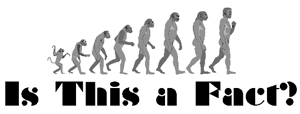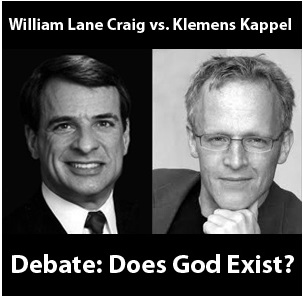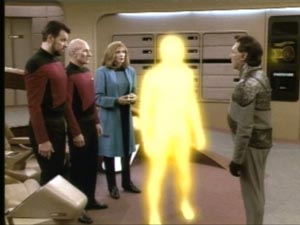7 Popular, but Fallacious Arguments used by Atheists
For those wondering why the apostle cast out a demon providing free advertisement for him, the answer is simple: God’s people are forbidden from having anything to do with demons2 – even if what they do is initially helpful. The amazing thing to Christians is that Paul put up so long with it. I mention it because I likewise feel troubled by the recurring contention of Atheists that the pseudo-gene known as GULO or GLO proves common descent. So let me
1. “GULO proves Evolution” What is GULO and how does it supposedly prove evolution?
L-gulonolactone oxidase – commonly known as GULO – is a gene designed to synthesize vitamin C from glucose or galactose, but in some groups of animals, the GULO gene does function in that manner, and so it is given the label of “pseudogene.”4 Additionally, the gene is “broken” reportedly in the same place in multiple species resulting in a loss of the ability to synthesize vitamin C. Humans are not able to synthesize vitamin C. Neither are guinea pigs, chimpanzees and several species of monkeys along with some species of birds, bats and fish. Evolutionists look at these facts and conclude that the only way the gene could have broken in the sample place is if the gene of a common ancestor became broken, and that same broken gene was then inherited by subsequent descendants. Thus to their way of thinking the only way this broken gene would show up in multiple species is if it started in a common ancestor. Recent evidence refutes this conclusion, and the attempts by evolutionists to salvage their conclusion makes matters worse – Continue Reading |
||||||
Category Archives: Atheism
Detecting the Doctrines of Demons
Honest atheists will tell you there is no purpose or meaning to life, no hope of an after life and all your thoughts, feelings and desires are merely the result of the electro-chemical reactions in your brain and thus are ultimately meaningless. As one such honest atheist put it:
Or as Cornell University atheist William Provine famously stated:
Knowing that the atheistic worldview can not support any sort of future meaning, hope or purpose does not stop some of them from trying to inject these into atheistic life and thought through any number of means. One such means is entertainment. Case in point – an episode of Star Trek: the Next Generation, titled “Transfigurations” which posits that man may be able to evolve into a higher spiritual state. Here’s how the guest character explains it:
Thus the decidedly atheistic Star Trek series displays a curiously messianic figure who has been exhibiting messianic attributes (like healing) just before he is seen completing another messianic miracle: the transfiguration. For those not familiar with the biblical account from which this is clearly drawn, here is the salient portion:
One is left to ponder – what is an atheistic series like Star Trek: the Next Generation doing displaying an episode with Christian themes? The answer lies in the explanation given – “a wonderful evolutionary change.” There it is – the atheistic hope. So once again, it is the theory of evolution that comes to the rescue. Just as it has rescued atheists from having absolutely no explanation for the origin of life, now they are hoping it will provide them with hope for a spiritual future for mankind; a hope that professor Provine has explained and clearly stated that atheists have no business expecting or hoping for. And while it may seem curious for an atheistic series like Star Trek to focus on such overtly Christian themes, once you hear the explanation, it’s supposed to all make sense. But there’s still a problem – a problem that becomes obvious – once you understand the recurring lie of the enemy. Before going there, a word on the historical account. |
||||||
Does where you’re born determine what you believe?
 |
Is your faith merely a product of your location and culture? |
Here’s a conceit that atheists allow themselves that would be amusing if it weren’t so utterly false and insulting to everyone who’s not an atheist. It goes something like this:
If you believe in God, you’re a slave to beliefs imposed upon you in your youth. You’re a slave to the beliefs from the area of the world and culture you grew up with. On the other hand if you’re an atheist, you’re not subject to such imposition, and have freed yourself of such beliefs. Of course they don’t put it that way, they usually phrase it something like this:
Dear theists: If you were born in India you’d be Hindu if you were born in Iraq you’d be Muslim if you were born… I’d still be an atheist
— Atheist World (@AtheistWorld)
August 29, 2013
Did you catch the conceit? Apparently, atheists believe they are somehow superior and they and only they have the power to choose what they believe. They thereby implicitly state that theists are weak and ignorant; and explicitly state theists are slaves to whatever belief was imposed upon them while they were growing up. What remains unanswered is for atheists who grew up in a family with theistic beliefs, why they too didn’t remain a slave to such beliefs?
Others1 have addressed this topic, but let me try to succinctly add some glaring issues with this argument:
First off it’s logically fallacious, falling to the logical fallacy of Special Pleading -where the arguer finds fault with a particular proposition or situation; yet they themselves fit the proposition or situation. Nonetheless they believe their conclusion does not apply to them – and provide no reason for believing themselves to be the exception. This is a classic case of irrational special pleading.
Secondly, many atheists continue to believe that Continue Reading
Enraging the Dragon
 A great and wondrous sign appeared in heaven: a woman clothed with the sun… Then another sign appeared in heaven: an enormous red dragon Rev 12.1, 3 |
When it comes to the Big Bang Theory, better to deny it and enrage the dragon, than God |
I’ve noticed a number of Christians – including some well known defenders of the faith1 – like to use the Big Bang as a way to ease a scientifically minded culture into belief in God since the Big Bang theory requires you believe that 1) the universe began 2) a finite amount of time ago, at a point in time, 3) out of nothing – just like the bible says. That leaves a perfect opening to present the Kalam cosmological argument which, briefly stated, says:
1. Anything that begins to exist has a creator
2. The Universe began to exist
3. Therefore the universe had a creator Continue Reading
Denying the Obvious
.jpg) Boeing 747 Intercontinental Those who can’t see the design behind clearly designed things such as a 747 or a human cell are denying the obvious. |
||||
In his critique of Stephen Hawking’s “Grand Design”, John Lennox writes:
Stephen Hawking is not the only atheist who doesn’t realize he’s engaging in metaphysics by dealing with questions of God. And that is not the only truth atheists fail to recognize. As I demonstrate below, many have a problem acknowledging that they are working not from scientific fact, but from deeply held belief. Lennox is not the first to point out obvious errors to someone who refuses to acknowledge it.
With these words Jesus advises careful and close self examination to avoid not only the charge of hypocrisy, but this current issue of self denial. After all one can hardly miss a “plank” or “beam” in the eye unless one is intentionally refusing to acknowledge it. That’s denial. And while some may find it questionable to poke the bear by appealing to a historical figure that some atheists deny, what is undeniable is the logic and wisdom of the advice. I mention it because one of the reasons for this blog is to point out errors, blind spots and logical inconsistencies that atheists tend to be either unaware of, or attempt to avoid by refusing to address. As a creationist attempting to point out such errors and inconsistencies, I find I keep running into the same kinds of invalid (and often irrational) arguments from atheists, such as:
Often, when you point out these errors, they are not addressed, not because the objection is not understood, but because there simply is no reasonable answer to the objection. So instead of acknowledging a problem with their world view, typically the response from atheists or agnostics will be show their inability to address the issue by to changing the subject and/or launching ad hominem attacks. But in refusing to address a glaring problem in their argument or logic by attempting to side step it, it leads one to an inescapable conclusion:
By irrational I mean untrue, or in the case of an argument, invalid for any of a number of reasons. By refusing to acknowledge or address such blatant errors what they are actually communicating is – Continue Reading |
Can you be A Christian and Believe in Evolution?
 What atheists have noticed that many Happy Thinking Christians have not What atheists have noticed that many Happy Thinking Christians have not |
||||
|
Christian Evangelist and defender of the Gospel Ravi Zacharias talks about how to reach the “Happy Thinking Pagan.” He describes their thought process this way:
I mention it because it is becoming increasing clear to me that when it comes to the creation / evolution debate, there is a large number of Christians who are walking in the thought process of the happy thinking pagan – namely Interestingly enough, thoughtful atheists have noticed the incompatibility between evolution and the Christian faith. Evolutionary evangelist Richard Dawkins has commented:
In fact, so many atheists have begun proclaiming the incompatibility between Christianity and Evolution that one blogger Continue Reading |
Evolution – A Faith Commitment
 Though they’ll never admit it, most evolutionists adhere to evolution as followers in any other religion adhere to their faith. Though they’ll never admit it, most evolutionists adhere to evolution as followers in any other religion adhere to their faith.
|
||||
| In what was intended to be the first article I posted on this site – What is Rational Faith, Part 11 – I mentioned that those who believe in the godless theory of Evolution (which includes most atheists and materialistic scientists) – adhere to it as one adheres to and follows a religious faith. In other words it has taken on the significance of religion in their lives. Most evolutionists would deny this, as would atheists who think that because they define their atheism as a lack of faith/belief in God, they therefore think themselves immune to the common banalities (as they might describe it) of being a follower of a faith. Yet when you look at the impact of evolution on their lives, and how it changes their thoughts and behaviors, one can only conclude that for those who thoroughly understand the theory, it has taken the place of God in their lives2. Now you’ll note I’ve qualified the statement by the phrase “those who thoroughly understand the theory.” I do so to distinguish the true adherents from those who follow it without thinking because it’s the “in” thing to do; it’s the majority belief, and they don’t want to be out of the main stream or worse – appear ignorant, or as John C. Lennox puts it, they
Those who know little about evolution apart from the fact that it supposedly tells us where we came from and it’s what scientists believe, should read articles like Reclaiming The Intellectual and Moral High Ground – which will inform them both on claims made regarding evolution – and why they’re incorrect. If they still believe in evolution, then they appear to have a faith commitment as do other adherents to the Evolutionary faith. So now that we understand about whom I’m speaking the question becomes how can I defend such a claim? Simply – by the fact that those believe in evolution exhibit the same signs and behaviors as those who follow any other religious faith. As the saying goes, if it looks like a duck, and walks like a duck, a quacks like a duck – it’s probably a duck. There are a number of such tell tale signs, let me just give you a few off the top of my head: Continue Reading |
Theism – Perfectly Rational
 In the debate between Craig vs. Kappel on the topic “Does God Exist” the question “Why should we believe atheism is true?” comes up.Kappel is unable to explain why anyone should believe in atheism while Craig provides 6 reasons right off the bat while theism is true. |
||||
In a debate held April 18, 2012 in Copenhagen, Christian apologist and philosopher William Lane Craig debated atheist philosopher Klemens Kappel on the topic: “Does God Exist?” I couldn’t resist posting this clip – for a number of reasons, namely: A. Dr. Craig concludes Theism or “the God hypothesis” as he put it earlier – is “perfectly rational to hold to” – which is of course the theme of this site. B. Dr. Craig Lists the explanatory power of Theism over atheism, Theism can explain things such as:
(All good topics I should discuss one day.) C. In challenging Dr. Kappel to prove atheism is true, Dr. Craig points out a number of ways one can logically or rationally establish an argument, namely by:
When you watch, notice two things:
Now without further ado, the video:
Duane Caldwell | posted 4-30-2014 | print format |
||||
| 1 The posts mentioning an inference to the best explanation are:The Poor Marksmenship of Evolutionists andReclaiming the Intellectual and Moral High Ground |
A Resurrection Day Response

I was asked by multiple atheists – what if some other religious book were true? Here is the response.
In the song “Nada One” Heart’s Nancy Wilson sings about an ephemeral, nocturnal love who has glowing, night creature eyes that frequents her dreams. This mysterious love seems to appear only in dreams where no one can see him. For even when wandering through streets, she describes this scene:
With such descriptions, one questions the reality of his existence. Indeed she herself seems to harbor a doubt or two since she must reminder herself “you are as real as I feel.” The one thing that’s not mysterious in this song, is what she means by “nada one.” Clearly “nada one” is a play on the sound of the phrase “not a one,” yet still, one must wonder – since it is always capitalized – if she’s using it as a proper noun – speaking or referring to a being named “Nada One.” The Wilson sisters were purposefully ambiguous for artistic purposes. But as we’ll see God is purposefully clear and unambiguous to eliminate doubt and nurture faith. I was reminded of this song as I awaited responses to a question I had posed. Let me step back and explain. I saw the below tweet that informed people that last Thursday was “National Ask an Atheist Day.”
This seemed like a perfect opportunity to re-query the unbelieving regarding a question I had asked in a Continue Reading |
Atheists – too afraid to answer
 Some Atheists are too afraid to answer the difficult questions. |
||||
|
There’s a very good article by Peter Saunders titled Twenty questions Atheists struggle to Answer: How Theism does better on the first six. Before presenting the first six issues which atheists struggle to answer (actually he’s being kind – he uses “struggle” as if they have an answer when actually atheism has no reasonable answer to the first 6.), he makes some preliminary comments. The third comment he makes – actually a challenge – is particularly apropos to a recent discussion I had. Speaking to Atheists and agnostics, Saunders says:
Of particular interest is the second sentence, a description of the toxic environment often created by atheists in their so called “discussions” with Christians or theists – discussions which are for the atheist often little more than opportunities to mock. To the list of the usual allegations I would add the allegation of “fallacious argument” a claim atheists wield as a shield against anyone who doesn’t agree with them – apparently before even reading the argument because they use it even when it doesn’t apply. Case in point, my last article – an article which ended with a hypothetical question along the lines of Pascal’s wager: Continue Reading |


